Results
-
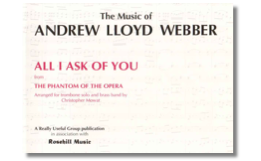 £39.95
£39.95All I Ask of You (Score and Parts) - Andrew Lloyd Webber arr. Chris Mowat
The official authorized brass band arrangement one of the hit from Andrew Lloyd Webber's The Phantom of the Opera. A very sophisticated arrangement by Christopher Mowat for solo trombone and brass band. Lush!
Estimated dispatch 7-9 working days
-
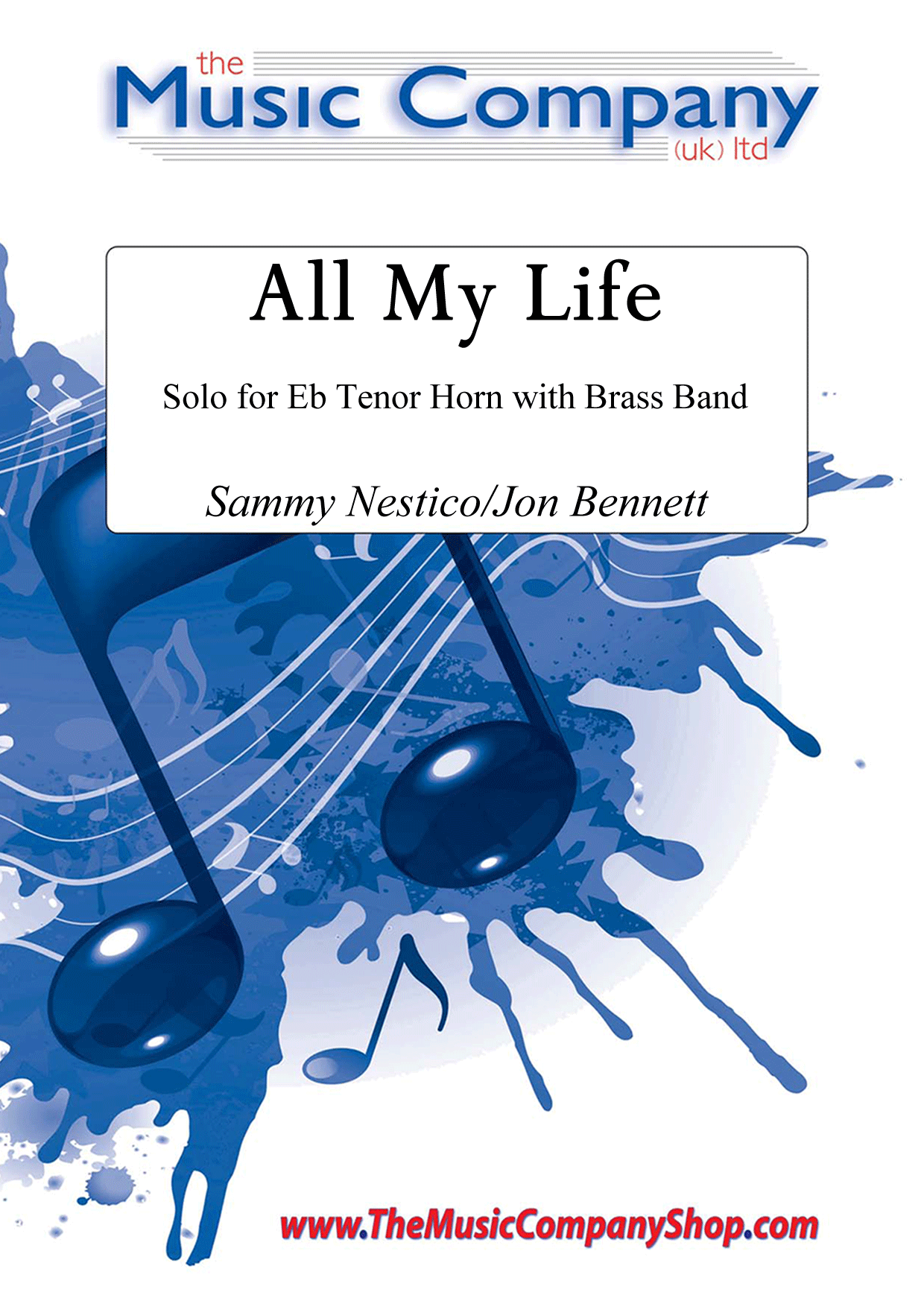 £30.00
£30.00All My Life - Sammy Nestico
A wonderful solo for Eb Tenor Horn with brass band accompaniment, arranged by Jon Bennett - the master of big band to brass band transference. A fantastic arrangement of the ever popular music of the late Sammy Nestico.
In Stock: Estimated dispatch 3-5 working days
-
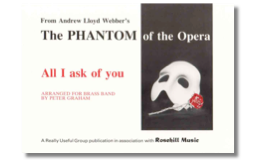 £39.95
£39.95All I Ask of You (Score and Parts) - Andrew Lloyd Webber arr. Peter Graham
The official authorized brass band arrangement one of the hit from Andrew Lloyd Webber's The Phantom of the Opera. Arranged by Peter Graham for full band.
Estimated dispatch 7-9 working days
-
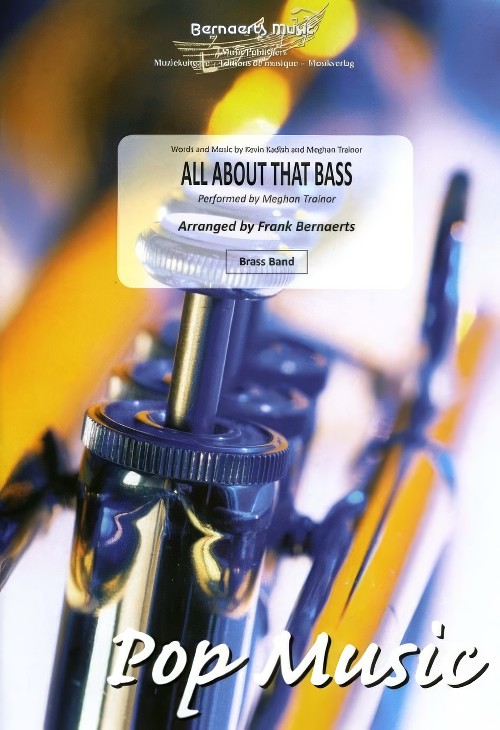 £53.99
£53.99All About That Bass (Brass Band - Score and Parts) - Kadish & Trainor - Bernaerts, Frank
This mega hit from recording artist Meghan Trainor features a catchy upbeat melody.Duration: 03:15
Estimated dispatch 7-14 working days
-
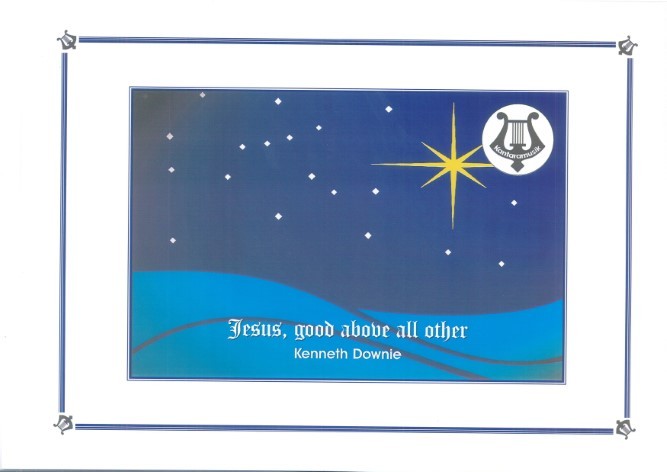 £24.95
£24.95Jesus, Good Above All Other (Brass Band - Score and Parts) - Downie, Kenneth
This well-loved tune comes to us from 14th century Germany. Its charm and simplicity are beautifully captured in this arrangement with its delicate orchestration and sensitive solo passages. This piece is well within the ability range of most bands.
Estimated dispatch 7-14 working days
-
 £12.50
£12.50Jesus, Good Above All Other (Brass Band - Score Only) - Downie, Kenneth
This well-loved tune comes to us from 14th century Germany. Its charm and simplicity are beautifully captured in this arrangement with its delicate orchestration and sensitive solo passages. This piece is well within the ability range of most bands.
Estimated dispatch 7-14 working days
-
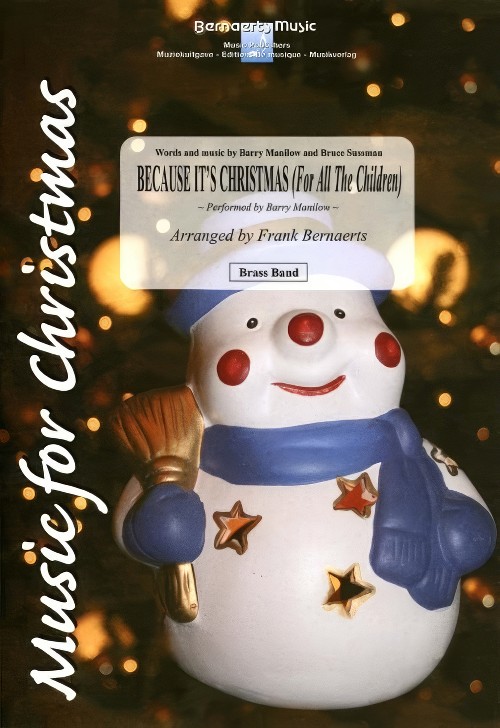 £53.99
£53.99Because It's Christmas (For All the Children) (Brass Band - Score and Parts) - Bernaerts, Frank
As performed by Barry Manilow. Duration: 3.15
Estimated dispatch 7-14 working days
-
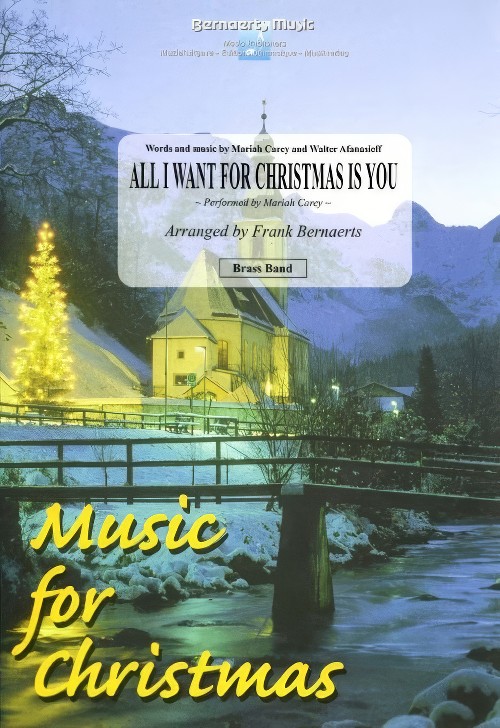 £54.99
£54.99All I Want for Christmas is You (Brass Band - Score and Parts) - Afanasieff & Carey - Bernaerts, Frank
As performed by Mariah Carey. Duration: 3.45
Estimated dispatch 7-14 working days
-
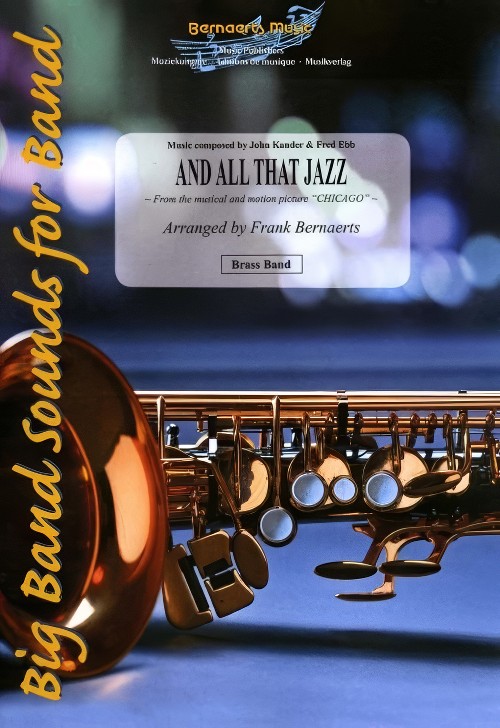 £54.99
£54.99And All That Jazz (Brass Band - Score and Parts) - Ebb & Kander - Bernaerts, Frank
Theme frrom the musical and motion picture Chicago. Duration: 3.15
Estimated dispatch 7-14 working days
-
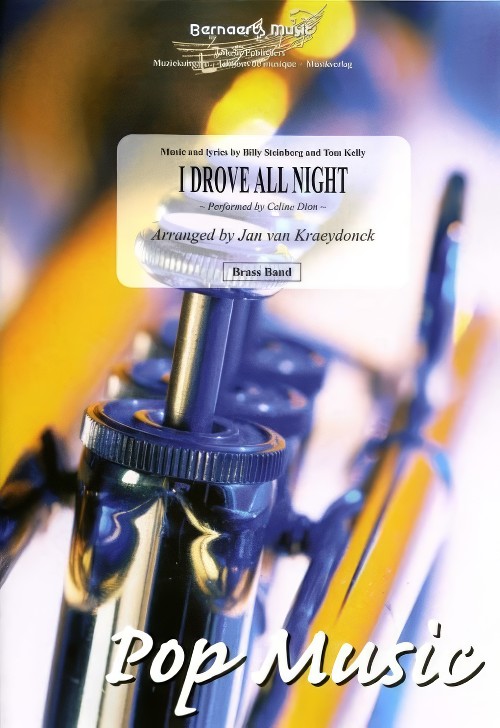 £51.99
£51.99I Drove all Night (Brass Band - Score and Parts) - Kelly & Steinberg - Kraeydonck, Jan van
Performed by Celine Dion. Duration: 03:30
Estimated dispatch 7-14 working days
